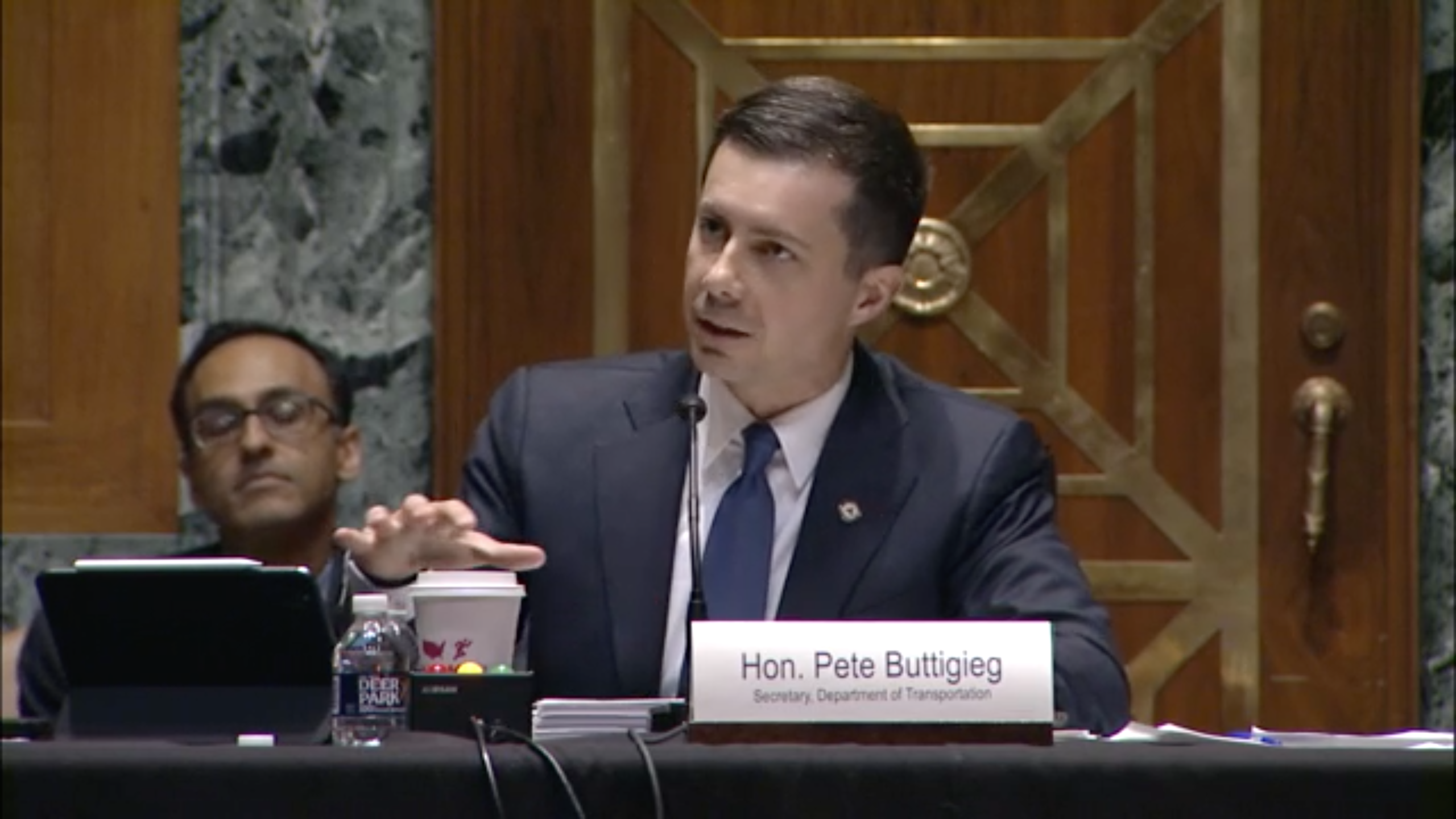Key Senate appropriators are concerned that the Trump administration’s coming fiscal 2018 budget proposal will cut spending for important transportation accounts, including the popular Transportation Investment Generating Economic Recovery, or TIGER, grant program.
Senate transportation appropriations subcommittee Chairman Susan Collins (R-Maine) said at a March 8 hearing on infrastructure issues, “I fully expect, when we get the budget, that we may well see the TIGER grant program slashed.”
Collins told reporters after the hearing that she hadn’t yet seen proposed DOT budget numbers from the Office of Management and Budget, but said “I’m just worried, based on what I’ve read.”
Sen. Jack Reed (R.I.,) the subcommittee’s top Democrat, said, “If we adhere to the steep budget cuts that the administration is contemplating for nondefense discretionary funding, it will be impossible to sustain even today’s funding levels for critical infrastructure programs, such as TIGER, rail safety, Amtrak and transit capital investment grants.”
OMB Director Mick Mulvaney said on Feb. 27 that the Trump administration will propose cutting nondefense spending in fiscal2018 by $54 billion, or about 10%.
Reed said, “The fact is that we can’t take $54-billion cuts in non-defense programs without doing significant harm to the sustainability and safety of our transportation network.”
Meeting with reporters after the hearing, Collins was asked how DOT programs that draw on trust funds might fare in the Trump 2018 budget. She said, “Since there is a revenue stream [for trust fund programs], I believe that there will be more attention paid to discretionary programs” in the Trump proposal.
She added, “But TIGER is not a trust fund program…. And it has been extraordinarily popular. The number of applications for TIGER grants far exceeds the amount of funding.”
In fact, in the most recent round of TIGER awards, announced last July, DOT distributed a total of $484 million to 40 projects. But it received 585 applications, seeking more than $9.3 billion.
Since the TIGER program was established in the 2009 American Recovery and Reinvestment Act, there have been eight rounds of awards, in which DOT has provided $5.1 billion in grants to 421 projects in every state plus the District of Columbia, Guam, the Virgin Islands and Indian tribes.
Maine has scored exceptionally well, winning grants in all eight TIGER rounds so far, receiving a total of $112.3 million. Two of the grants were joint projects with New Hampshire.
Testifying at the hearing, Maine DOT Commissioner David Bernhardt, cited the Sarah Mildred Long bridge, which carries both highway and freight rail traffic between Maine and New Hampshire over the Piscataqua River.
In 2014, the two states jointly received a $25-million TIGER grant for the project, which is well under construction. Bernhardt said, “Without TIGER it would have been very difficult to make that project happen.”
Another witness at the hearing, Beth Osborne, senior policy adviser with advocacy group Transportation for America, said, “Programs like TIGER reward performance and innovation in a way that formula programs can’t.”
Osborne, a former U.S. DOT official who worked there on the TIGER program, added that, under formula highway funding, whether a state is “performing beautifully or not so well” its formula allotment stays the same. She said, “In competition, when you do more than a neighbor, you get the money…You win.”
Collins said she is concerned about what OMB might recommend for TIGER, which she called “one of my favorite programs.” She said, “It’s going to be a real challenge, there’s no doubt about it.” Collins said she will be meeting with DOT Secretary Elaine Chao “shortly” about the coming budget.





